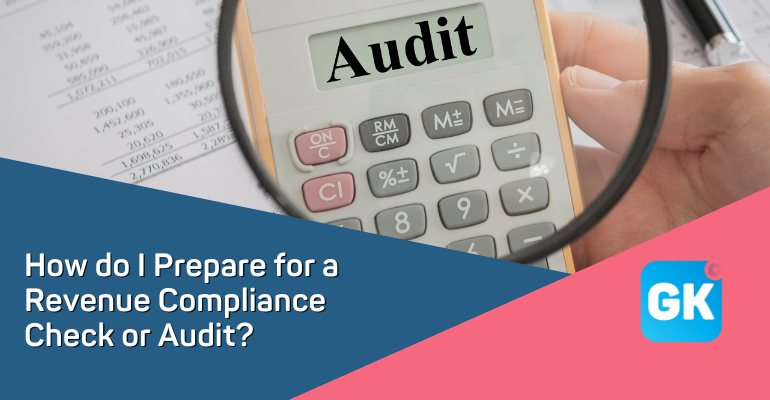How do I Prepare for a Revenue Compliance Check or Audit?

How do I Prepare for a Revenue Compliance Check or Audit?
In recent months, an increasing number of businesses have found themselves on the receiving end of random compliance check letters from Revenue. But what exactly is a Revenue audit or compliance check, and how can you prepare for it effectively?
Understanding Revenue Audit or Compliance Check:
A Revenue audit or compliance check is a thorough examination of your company’s tax returns in comparison to your tax records. It’s essential to maintain meticulous accounting and tax records to ensure compliance in the event of such checks. Keeping accurate records not only facilitates seamless compliance but also minimises the risk of missing filing deadlines.
Contents of the Revenue Audit Notification Letter:
Upon initiation of a Revenue audit, you’ll receive a notification letter informing you of the impending visit by a Revenue official. If you have a tax accountant or agent, they’ll also receive a similar notification. Typically, you’ll be given 21 days’ notice, although Revenue often accommodates date changes if necessary. The letter will outline the periods to be audited and specify the type of tax under scrutiny.
Reasons for Being Chosen for a Compliance Check:
There are three primary reasons why your business might have been selected for a compliance check:
-
Random Audit: You may have been chosen as part of Revenue’s routine random audits conducted each year.
-
Industry-Specific Focus: If your business operates in an industry with a high rate of non-compliance, Revenue may target it for scrutiny.
-
Specific Information from Revenue: Revenue might have received specific information prompting your selection, often through its Risk Evaluation Analysis and Profiling (REAP) system.
Preparation Is Key:
Once notified of an impending audit, it’s crucial to utilize the time to prepare diligently. If you identify any tax discrepancies, prompt voluntary disclosure and payment of tax and interest are imperative. While an audit typically focuses on one year, Revenue can legally review records for up to four years and even further in cases of suspected fraud or neglect. Companies must retain financial records for six years to comply with legal obligations.
Direct Communication with Revenue:
Maintaining open and direct communication with Revenue throughout the audit process is essential. Revenue officials may issue an audit notice, determine no issues exist, or issue an aspect query seeking clarification on a tax matter. Prompt and transparent responses can often resolve queries satisfactorily, averting further action.
In conclusion, while the prospect of a Revenue audit may seem daunting, thorough preparation and cooperation can streamline the process and ensure compliance with tax regulations. By maintaining accurate records and engaging proactively with Revenue, businesses can navigate audits with confidence and integrity.
Contact us:
At Gallagher Keane, our dedicated team of professionals is committed to providing business owners with valuable support. We take care of various administrative tasks, forecasting, and accounting management on behalf of your organisation.
Search
Recent Posts
- Civil Service Subsistence Rates Updated: What Employers Need to Know in 2025
- Gallagher Keane Announces Acquisition of Brian Terry & Co
- What You Need to Know About Ireland’s Gender Pay Gap Reporting Changes in 2025
- How to Build a Strong Financial Plan for Your Business – Tips from Inesa
- Is Your Business Ready for a CFO? Explore Our Fractional Services


